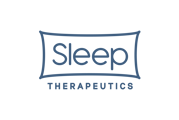Discover why CPAP users experience dry throat and simple ways to fix it for a more comfortable sleep.
Waking Up with a Dry Throat: What’s Behind It?
If you’re a CPAP user, waking up with a dry, scratchy throat can be frustrating. This common issue can disrupt your sleep and leave you feeling less than refreshed in the morning. The good news? Understanding the causes can help you find effective solutions.
Why Does CPAP Use Cause a Dry Throat?
-
Mouth Breathing
If your CPAP machine uses a nasal mask or nasal pillows and you sleep with your mouth open, air may escape through your mouth. This can dry out your throat and nasal passages, reducing the overall effectiveness of your therapy. -
Insufficient Humidification
CPAP machines often include a built-in humidifier to add moisture to the air you’re breathing. If the humidifier settings are too low—or if it’s not being used—dry air can irritate your throat. -
Air Leaks
An ill-fitting mask can allow air to escape, leading to a dry throat and reduced therapy efficiency. Over time, wear and tear on your mask can also cause leaks. -
Environmental Factors
Sleeping in a room with low humidity, especially during winter or in air-conditioned spaces, can make dryness worse even with CPAP therapy.
Easy Fixes for Dry Throat
-
Use a Full-Face Mask or Chin Strap
Switching to a full-face mask can help if you’re a mouth breather. Alternatively, a chin strap can keep your mouth closed while you sleep, ensuring air flows properly through your CPAP. -
Adjust Humidifier Settings
Increase your CPAP humidifier’s settings to provide more moisture. If your machine doesn’t have a humidifier, consider adding one to your setup. Heated tubing can also prevent condensation and improve comfort. -
Check Your Mask Fit
Regularly inspect your mask for wear and tear. Replace worn-out parts and ensure your mask fits snugly to prevent air leaks. A sleep therapist can help you with refitting if needed. -
Optimize Your Sleep Environment
Use a humidifier in your bedroom to add moisture to the air, especially in drier seasons. Keeping the room temperature moderate can also help reduce dryness. -
Stay Hydrated
Drink plenty of water during the day to prevent dehydration, which can make dryness worse. Avoid caffeine and alcohol before bed, as they can contribute to dehydration.
When to Seek Help
If dry throat persists despite these adjustments, it’s a good idea to consult your Sleep Therapeutics clinician. They can evaluate your CPAP settings, check for underlying issues, and ensure your therapy is optimized.
Key Takeaway
Dry throat from CPAP therapy is common but manageable. Small adjustments—like improving your mask fit or increasing humidification—can make a big difference in your comfort and sleep quality. Sleep shouldn’t leave you parched; it should leave you refreshed!
Need Help?
Contact Sleep Therapeutics for expert advice and solutions tailored to your CPAP needs. Book a consultation today!
